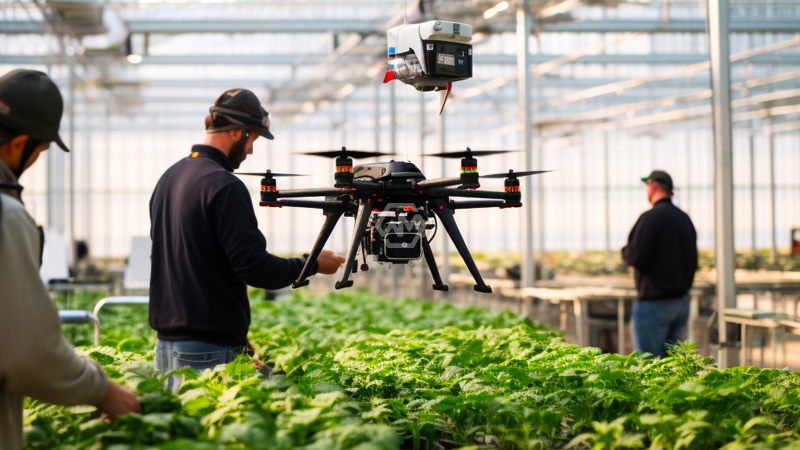- Controlled Environment Agriculture (CEA) is transforming rural Virginia with high-tech indoor farming and workforce training.
- Former public buildings are being repurposed into low-cost, sustainable vertical farms through private-public partnerships.
- Institutions like Virginia Tech and Danville Community College are at the forefront of education and innovation in the sector.
In rural corners of Virginia, a quiet agricultural revolution is blooming indoors. Through Controlled Environment Agriculture (CEA), high-tech greenhouses and vertical farms are producing crops year-round using hydroponic and aeroponic systems that drastically reduce water use and eliminate soil.
Meanwhile, a wave of innovation is repurposing unused infrastructure for modern agricultural needs. In Pulaski County, a historic school is being converted into a vertical farming hub through partnerships between Vegg Inc., Pod Farms, and Mova Technologies.
Green Shoots Indoors: CEA and Vertical Farming Reimagine Virginia’s Agricultural Future
CEA’s rising relevance is tied closely to the climate crisis and the need for resilient food systems. As weather patterns grow erratic, traditional farming faces increasing uncertainty. Indoor agriculture ensures consistent yields by providing controlled lighting, temperature, and nutrients—making crops like lettuce, strawberries, and herbs viable throughout the year in Virginia.
The economic promise of CEA lies not just in crop yields but also in job creation and skill development. While full automation may limit the number of positions, the jobs created are high-skill, higher-wage roles that demand digital literacy, problem-solving, and adaptability. Training programs at community colleges and through boot camps are preparing future workers for these roles.
The Jefferson School retrofit in Pulaski is more than a farm—it’s a model for rural revitalization. By converting abandoned buildings into grow hubs, developers reduce both environmental impact and operational costs. This model could be replicated across Virginia, enabling communities to reclaim underutilized space for sustainable agriculture.
Virginia Tech’s role as a research and talent pipeline is crucial. Through projects at its Blacksburg and Danville campuses, students are immersed in real-world experiments that feed both data and workforce needs. Early exposure at the high school and college levels is key to expanding the industry and attracting more companies to the state.
As Virginia roots its future in technology-driven agriculture, Controlled Environment Agriculture emerges not just as a farming method—but as a blueprint for rural renewal.
“The future of agriculture lies in innovation that honors the past but grows in new directions.” — Adapted from Wendell Berry



